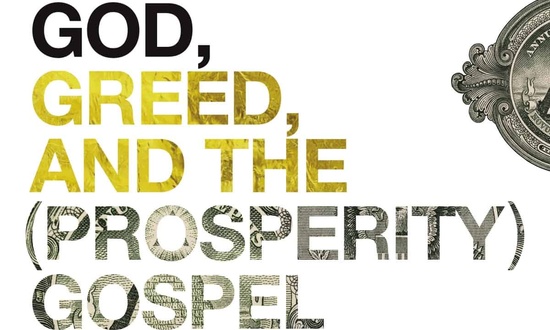Question from a reader:
My husband became a covenant partner with your ministry. He will be giving a recurring donation. Would you please pray for our family? We have been tithing, believing Jesus Christ is the Lord of the harvest, and He returns a harvest to those who give. My husband is always giving to ministries that help to feed or shelter the poor. He has been giving so much that we are in need of help ourselves. You can’t out give God, but we have been living from paycheck to paycheck.
Answer from Stephanie Anderson, EPM staff:
Certainly, we deeply appreciate those who choose to support EPM and the work we are doing to spread the good news of our eternal hope in Jesus around the world. However, we also want to encourage our supporters to seek God’s wisdom and to make wise financial decisions as they give. We would never encourage someone to go into debt to give to our ministry, or to give in a way that would prevent them from taking care of their family and paying their bills. “But if anyone does not provide for his relatives, and especially for members of his household, he has denied the faith and is worse than an unbeliever” (1 Timothy 5:8).
And we always recommend giving first and foremost to your local church body. Both Scriptural example and common sense make clear that the believer’s first and primary giving obligation is to his own church family, and then giving to other organizations is beyond that.
EPM does believe God loves cheerful givers (2 Corinthians 9:7) and does provide for givers so that we can be generous and glorify Him (2 Corinthians 9:8, 11). However, we want to be careful not to encourage anyone to believe that giving in any way obligates God to bless us financially with a certain amount or lifestyle in return. That can veer dangerously into what is called Prosperity Theology. Randy writes about this:
I’ve written in my books (including Managing God’s Money and Money, Possessions, and Eternity) and on my blog about the false doctrine of prosperity gospel. This philosophy teaches that the more money you give away, the wealthier you will become. Following God through giving and other forms of obedience becomes a formula for abundant provision and the celebration of prosperous living. This is, in essence, a Christianized materialism.
Do you and your family have a local church body? We would encourage you to talk to your pastor or another trusted believer at your church about this. Having someone who knows you personally and can give you biblical advice related to finances and giving might be helpful.
God bless you.
(The following excerpts are from Randy’s books Giving Is the Good Life and Managing God’s Money and apply to your query.)
Giving Has a Boomerang Effect
Scripture is full of God’s words to generous givers: “Honor the Lord with your wealth and with the firstfruits of all your produce; then your barns will be filled with plenty” (Proverbs 3:9-10). But God doesn’t intend for us to keep everything he brings into our barns! We are to distribute it generously. We give to him, he gives to us, and we keep giving it back to him, recognizing that it belongs to him anyway. Jesus says, “Give, and you will receive. Your gift will return to you in full—pressed down, shaken together to make room for more, running over, and poured into your lap. The amount you give will determine the amount you get back” (Luke 6:38, NLT).
Recalling the words of one of his customers, R. G. LeTourneau put it this way: “I try to shovel out more for God than He can for me, but He always wins. He’s got a bigger shovel.” As many others have, he lived out the proverb: “Give freely and become more wealthy; be stingy and lose everything. The generous will prosper; those who refresh others will themselves be refreshed” (Proverbs 11:24-25, NLT).
In some cases God’s extra provision is obvious—we get an unexpected check in the mail or are given something we thought we’d have to buy. One time Nanci and I discovered an error we’d made in our bank balance, finding we had significantly more money than we realized.
In other cases, God’s provision is less obvious but equally generous. A washing machine that should have broken down a decade ago keeps working. A car with more than two hundred thousand miles runs for three years needing no repairs. A checking account that should have dried up long before the end of the month somehow makes it through. As God miraculously stretched the widow’s oil supply in Elisha’s day (2 Kings 4:1-7), and as he made the Israelites’ clothes and sandals last forty years in the wilderness (Deuteronomy 8:4), I’m convinced he sometimes graciously extends the life of things that would normally need replacement.
Consider Bob, who decided he wanted to give sacrificially when his church started a building campaign to expand their crowded sanctuary. Every morning he’d made a Suisse Mocha coffee. He calculated that if he gave up this habit for three years, he’d be able to give an additional $780.
As part of his church’s financial campaign, Bob gave a short speech at church, mentioning his plan to forgo his coffee.
Two days later, he received a call from a woman asking if he was the Mr. Hodgdon who spoke at church. That evening she delivered a box to him, introducing herself as a General Foods employee. Inside were several months’ worth of Suisse Mocha, the same product Bob had given up. Bob added, “The strange thing is, I’ve never seen or heard from her since. I’ve looked for her at every church service, but maybe it was one of God’s angels. You just cannot out-give God.”
This small thing wasn’t small to Bob. It showed his Father’s gracious kindness to him and prompted him, in a childlike way, to trust and give even more.
This is not health-and-wealth gospel or prosperity theology. I’m certainly not saying that God must always give back to us exactly what we give up, or ten or a hundred times more, in some kind of karma-like transaction or misapplication of Mark 10:30. Sometimes he gives us joy or patience or endurance as we make real sacrifices for him—and such intangible gifts are considerably more precious than a stash of morning coffee. But aren’t you glad God sometimes rewards us with little things to remind us of his love and approval?
Doesn’t God promise to make us prosperous if we obey him?
The portion of truth that makes prosperity theology credible is that some Old Testament passages do indeed link material prosperity with God’s blessing. For instance, God gave material wealth to Abraham (Genesis 13:1‑6), Isaac (26:12‑14), Jacob (30:43), Joseph (41:41‑43), Solomon (1 Kings 3:13), and Job (Job 42:10‑17) because he approved of them. He promised the Israelites that he would reward them materially for faithful financial giving (Deuteronomy 15:10; Proverbs 3:9‑10; 11:25; Malachi 3:8‑12).
But this is by no means the whole picture. God warns against the dangers of wealth—especially that in prosperity people often forget the Lord (Deuteronomy 8:7‑18). But even when people love God with all their hearts, they suffer. In fact, they’re promised suffering (Acts 14:22; 2 Timothy 3:12).
Job laments, “Why do the wicked prosper, growing old and powerful? They live to see their children grow up and settle down, and they enjoy their grandchildren. Their homes are safe from every fear, and God does not punish them. . . . They spend their days in prosperity” (Job 21:7‑9, 13).
The psalmist asks, “Lord, how long will the wicked, how long will the wicked triumph?” (Psalm 94:3, NKJV).
Jeremiah, a righteous man who lived in constant adversity, framed the question this way: “Lord, you always give me justice when I bring a case before you. So let me bring you this complaint: Why are the wicked so prosperous? Why are evil people so happy?” (Jeremiah 12:1).
If, as prosperity theology maintains, material wealth is a reliable indicator of God’s reward and approval, then crime bosses, embezzlers, and drug lords are the apple of his eye. History is full of successful madmen and prosperous despots. If, on the other hand, lack of wealth always shows his disapproval, then Jesus and Paul were on God’s blacklist.
Jesus reminds us that his common grace is available to all, for our Father “gives his sunlight to both the evil and the good, and he sends rain on the just and the unjust alike” (Matthew 5:45). Similarly, he sends both prosperity and hardship on those who obey him and those who disobey.
Photo by Giuseppe Russo




